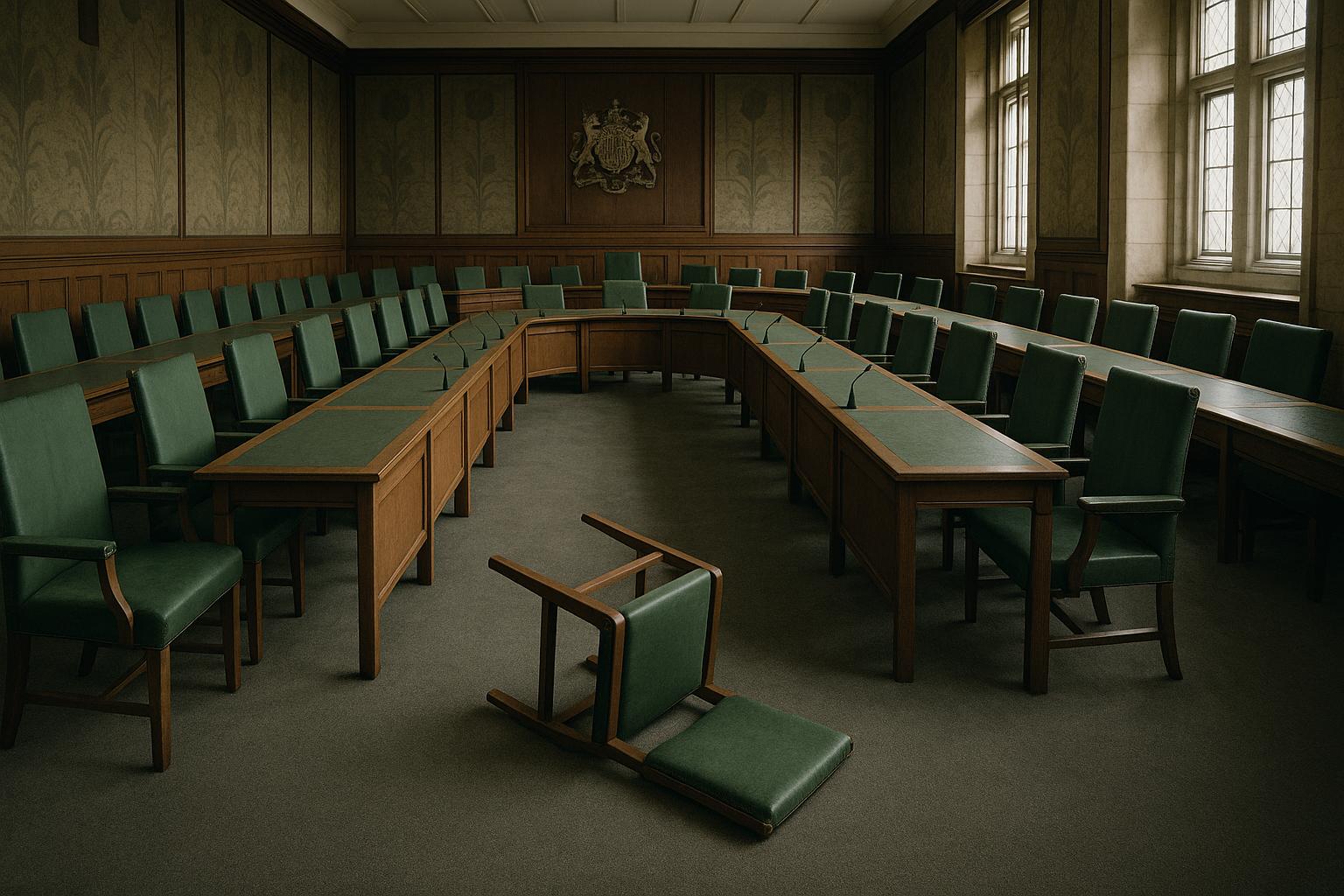Before the UK general election, Labour leader Sir Keir Starmer notably emphasised his tenure as Director of Public Prosecutions (DPP), portraying himself as a resolute guardian of national security and an effective crime-fighter. This background implied that under his leadership, any breaches of security, especially involving foreign espionage within Parliament, would be swiftly addressed and prosecuted. However, the recent collapse of the espionage case against Christopher Cash and Christopher Berry, two men charged with spying for China while operating in Westminster, has cast serious doubts on that promise and raised significant concerns about government resolve and national security protections.
The Crown Prosecution Service (CPS), after reviewing the evidence, had initially believed sufficient grounds existed to charge Cash and Berry under the Official Secrets Act for passing sensitive information potentially useful to a hostile state. Both defendants have strongly denied the allegations. Yet, the trial fell apart primarily because the government failed to provide the necessary official designation of China as a national security threat for the relevant period. This designation is legally crucial under the 1911 Official Secrets Act, which defines an "enemy" as a country posing a current security threat. Without this, prosecutors lacked the essential government certification to proceed.
This failure has provoked vigorous criticism from security experts, opposition politicians, and commentators, arguing that the UK government has effectively disarmed its own prosecutorial efforts in the face of an unequivocal threat from Beijing. Michael Gove, writing in a leading commentary, depicted the Chinese espionage effort as aggressive and systemic—employing bribery, coercion, honey traps, and surveillance to infiltrate political and business environments. He stressed that all his government experience, including participation in National Security Council discussions branding China an "evil empire," made the failure to support the espionage prosecution utterly baffling and damaging to Britain's reputation.
Government officials, including Prime Minister Starmer, have defended the decision by stressing that the lack of a formal threat designation originated under the previous Conservative administration, which had refrained from labelling China a security threat in official terms, opting instead for the softer phrase "strategic challenge." Starmer, speaking during a visit to India, emphasised that the Labour government was legally constrained and not politically motivated in dropping the case. The Director of Public Prosecutions, Stephen Parkinson, confirmed the prosecution depended on government testimony classifying China as a threat—testimony that was not forthcoming because the government had not made that formal declaration.
Nevertheless, critics remain unconvinced by this explanation. Conservative figures and national security advocates argue that the case’s collapse reflects a dangerous prioritisation of diplomatic relations and economic interests with China over safeguarding national security. Many express frustration that the decision sends a signal of weakness to Beijing, which is, as noted by Gove, extensively engaged in espionage activities globally and within UK institutions. There are also calls for greater transparency, including the publication of witness statements by Deputy National Security Adviser Matthew Collins, whose role in the case has been controversially highlighted—some accuse the government of scapegoating him, while others point to systemic failure in Whitehall oversight.
The espionage case also underlines broader concerns about China's covert operations in the UK and beyond. Multiple reports, including parliamentary inquiries and intelligence warnings, have documented Beijing's attempts to steal intellectual property, infiltrate political decision-making, and conduct influence operations. The controversy over Huawei's involvement in telecom infrastructure and suspicions around the origins of Covid-19 further fuel anxieties about Beijing’s intentions. Past British governments have been caught between balancing economic engagement with China and addressing its increasingly evident threats to sovereign security.
Christopher Cash, a former parliamentary researcher who had ties to senior Conservative MPs, and Christopher Berry, an academic with experience living and teaching in China, were charged in early 2024. They were alleged to have unlawfully shared information detrimental to the UK’s security interests between late 2021 and early 2023. Both men were granted conditional bail, with restrictions on contact and travel. The Chinese Embassy dismissed the charges as baseless slander, a response mirrored in other cases of alleged Chinese espionage raised in Europe.
The decision to drop the case has provoked intense parliamentary scrutiny, with calls for greater accountability from key security officials and ministers involved. Observers note that the fallout reveals a troubling gap in the UK's approach to counterespionage, especially as diplomatic strategies fluctuate. The situation also highlights the legal and bureaucratic complexities of prosecuting espionage under existing legislation, which requires alignment between security policy designations and prosecutorial action.
The failure to prosecute in this high-profile case risks emboldening Beijing’s espionage tactics and undermines public confidence in Britain’s ability to protect its democratic institutions. As Michael Gove warned, the laughter in Beijing’s halls of power at Britain's apparent collapse in this matter resonates as a stark signal that the country’s security framework is under immense strain. Moving forward, calls for transparency, robust legal reforms, and a clearer, more resolute stance on foreign threats are likely to grow louder to restore credibility and resilience in UK national security.
📌 Reference Map:
- Paragraph 1 – [1]
- Paragraph 2 – [1], [2], [3]
- Paragraph 3 – [1], [2], [3], [4], [5]
- Paragraph 4 – [1], [2], [3]
- Paragraph 5 – [1], [3], [6]
- Paragraph 6 – [1], [4], [5], [7]
- Paragraph 7 – [1], [2], [3]
- Paragraph 8 – [1], [2], [3]
Source: Noah Wire Services
